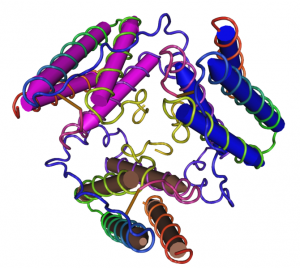Researchers Identify Essential Regulator Of Body Fat Leading The Way For Improved Treatment Options
 Researchers at the University of Sheffield have identified a key part of the obesity receptor in humans offering hope for new and improved treatments for obesity and anorexia.
Researchers at the University of Sheffield have identified a key part of the obesity receptor in humans offering hope for new and improved treatments for obesity and anorexia.
The study which is published in the journal Structure provides new insight into the configuration of the receptor for the obesity hormone leptin. Researchers used state of the art x-ray crystallography to block and stimulate the receptor for leptin, gaining new understanding of the process involved, and offering the potential to develop effective treatments for complications stemming from obesity and malnutrition.
The obesity hormone leptin is produced by fat. Excess quantities of leptin have been linked to conditions such as multiple sclerosis, heart disease, diabetes, and cancer in overweight persons. A deficiency in leptin may result in malnutrition, infertility and immunodeficiency.
The researchers hope to develop new treatments for obesity and anorexia based upon their understanding of the precise atomic structure of the obesity receptor, and their ability to accurately regulate the process involved. Up until now, the crystal structure of this receptor has been extremely challenging to identify. By discovering how to block the receptor for leptin with a therapeutic antibody that prevents the leptin from binding, scientists have been able to modify the hormone’s impact and amend associated physiological processes such as controlling a person’s appetite.
Further research is now needed in order to design specific drug molecules that can both block and stimulate the leptin receptor. This will allow scientists to offer medication treatment options for individuals suffering from serious health complications stemming from obesity and malnutrition.
According to the researchers, this groundbreaking ability to effectively regulate the hormone leptin provides them with the potential to positively impact the health of millions of individuals who currently struggle with obesity and eating disorders.
Source: Medical News Today
 Eating Disorder Self Test. Take the EAT-26 self test to see if you might have eating disorder symptoms that might require professional evaluation. All answers are confidential.
Eating Disorder Self Test. Take the EAT-26 self test to see if you might have eating disorder symptoms that might require professional evaluation. All answers are confidential.